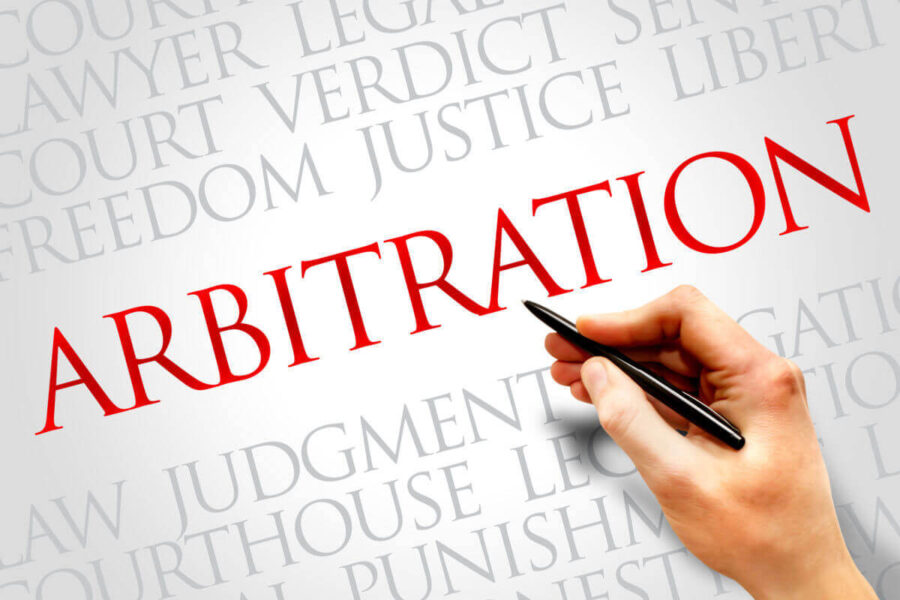In recent times, the arbitration process has become a powerful tool to bring business disputes to an end. The Arbitration and Conciliation Act, 1996 (hereinafter referred to as “the Act”) was enacted to consolidate, codify and amend the laws pertaining to domestic as well as international commercial arbitration and enforcement of foreign awards. The Act also codified laws related to conciliation and connected matters. The Act ensures party autonomy and confidentiality in the matters of arbitration.
Important Requisite
Arbitration Agreement
The requirements of an arbitration agreement are provided under Section 7 of the Act. The arbitration agreement must be in writing and duly signed by the parties. The arbitration agreement can be in the form of an arbitration clause in a contract or in the form of a separate agreement.
Notice required prior to referral of disputes
Notice by one party to another party under Section 21 of the Act is mandatory before referring the disputes to arbitration.
Appointment of Arbitrator
Under Section 11 of the Act, the parties are free to agree on a procedure for the appointment of arbitrator or arbitrators. But if the appointment of the arbitrator is not consensual, the arbitrator has no power to make a binding order or award and if he makes any award it will be a nullity.
Members involved in the proceedings
The parties to the arbitration agreement under Section 10 of the Act are free to determine the number of arbitrators but such number shall not be an even number.
So, the members involved in any arbitration proceedings are the parties to the arbitration agreement and a sole arbitrator, or a tribunal of several arbitrators.
Arbitration Proceeding
Section 21 of the Act provides the rules which govern the commencement of arbitral proceedings. It gives freedom to the parties to agree and determine when the arbitration proceeding can officially commence. But in the absence of such an agreement or where the parties fail to arrive at an agreement, the arbitral proceedings can commence when one party issues a notice to the other party, in writing, showing its intention to refer the dispute to arbitration.
Limitation period
Any arbitration proceedings commenced after the limitation period, i.e., three years from the date on which the cause of action arose, will be time-barred.
Procedure for arbitral proceedings
Section 19 of the Act recognizes the right of the parties to agree on the procedural rules which are applicable in conducting the arbitral proceedings. This provision establishes the procedural autonomy of the parties.
When the parties fail to agree on a procedure or frame the procedure, it grants the arbitral tribunal a wide range of discretionary powers to frame the arbitral proceedings. The Act does not prescribe any default rules regulating the arbitral proceedings.
Place of Arbitration
Section 20 of the Act provides that the parties are free to agree on the place of arbitration and if they fail to agree then the arbitral tribunal has to determine the place of arbitration in a judicial manner, considering the circumstances of the case and convenience of the parties.
Statement of Claim and Defense
Section 23 of the Act provides for pleadings of the parties before the arbitral tribunal. After the arbitral tribunal has been established, the usual practice is to exchange and file their pleadings before the tribunal.
Termination
The arbitral proceedings are terminated either by the final arbitral award or by an order of the arbitral tribunal terminating the arbitral proceedings.
The arbitral tribunal terminates the arbitral proceedings in any of these cases where:
- the claimant withdraws the claim and respondent does not object to it,
- both parties are in consensus and agree to terminate the arbitral proceedings, or
- the continuation of the arbitral proceedings has become impossible or irrelevant considering the present facts of the case.
Conclusion
The arbitral proceeding is based completely on the concept of party autonomy, where both the parties decide the procedure as well as the circumstances under which arbitration is sought. The “rules of the game”, such as applicable law, the seat of arbitration, the language of the proceedings, etc. are in the hands of the parties and the arbitral proceedings are mostly conducted based on those rules. So, there are no particular set of rules and applicable laws which govern the arbitral proceedings. However, Arbitration and Conciliation Act, 1996 limits judicial intervention and reinforces the importance to party autonomy, confidentiality and expeditious completion of arbitral proceedings.
Written by Adv Rohit Yadav

